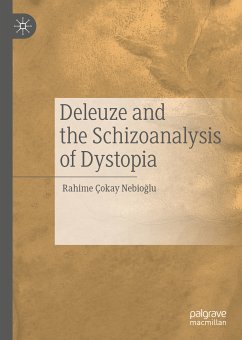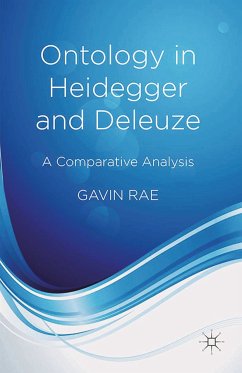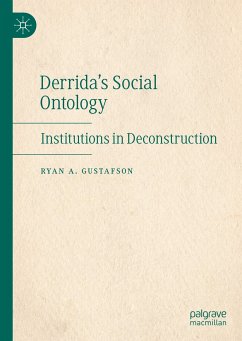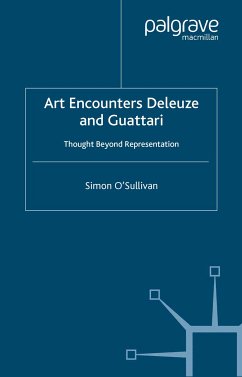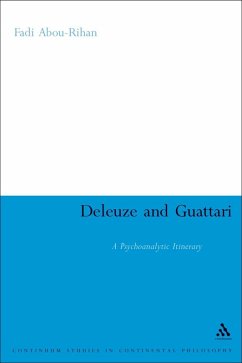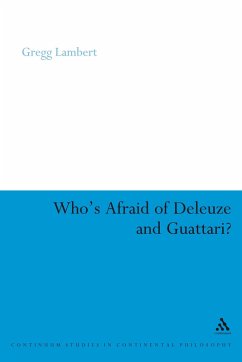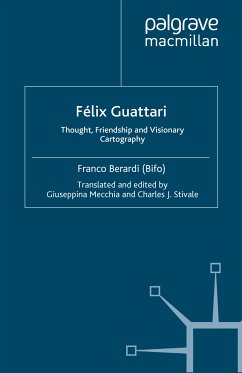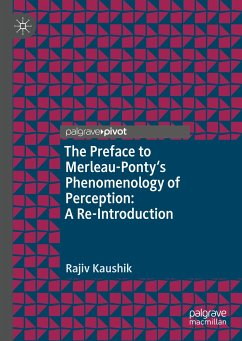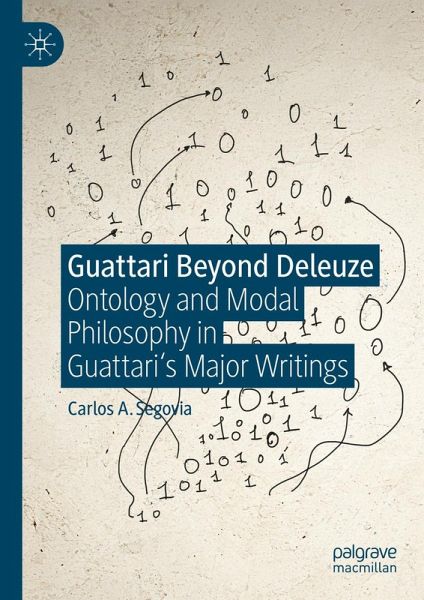
Guattari Beyond Deleuze (eBook, PDF)
Ontology and Modal Philosophy in Guattari's Major Writings
Versandkostenfrei!
Sofort per Download lieferbar
112,95 €
inkl. MwSt.
Weitere Ausgaben:

PAYBACK Punkte
56 °P sammeln!
This book argues that, by virtue of his original and ongoing contribution to ontology and modal philosophy (from the texts gathered in Psychanalysis and Transversality to the unpublished manuscript notes for What Is Philosophy?), Guattari is to be acknowledged a philosopher in his own right, independently from Deleuze. Furthermore, it looks back and forth beyond Anti-Oedipus and contends that Guattari's major writings gradually supplement deterritorialization with determinability. Accordingly, it offers a new interpretation of the nuanced development of Guattari's philosophical thought, which ...
This book argues that, by virtue of his original and ongoing contribution to ontology and modal philosophy (from the texts gathered in Psychanalysis and Transversality to the unpublished manuscript notes for What Is Philosophy?), Guattari is to be acknowledged a philosopher in his own right, independently from Deleuze. Furthermore, it looks back and forth beyond Anti-Oedipus and contends that Guattari's major writings gradually supplement deterritorialization with determinability. Accordingly, it offers a new interpretation of the nuanced development of Guattari's philosophical thought, which it proposes to define as constructivist, rather than post-structuralist. Additionally, it explores the innovative responses that Guattari's philosophy supplies to various contemporary philosophical debates like those on accelerationism, indeterminacy, compossibility, and worlding. Finally, it examines the differences that, upon a careful cross-reading of their earliest texts (including The Anti-Oedipus Papers and Difference and Repetition), must be drawn between Guattari's constructivism and Deleuze's sacrificial philosophy.
Dieser Download kann aus rechtlichen Gründen nur mit Rechnungsadresse in A, B, BG, CY, CZ, D, DK, EW, E, FIN, F, GR, HR, H, IRL, I, LT, L, LR, M, NL, PL, P, R, S, SLO, SK ausgeliefert werden.



